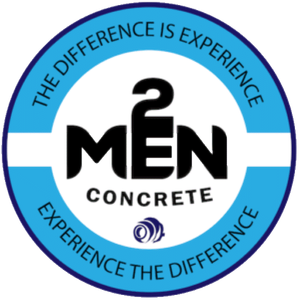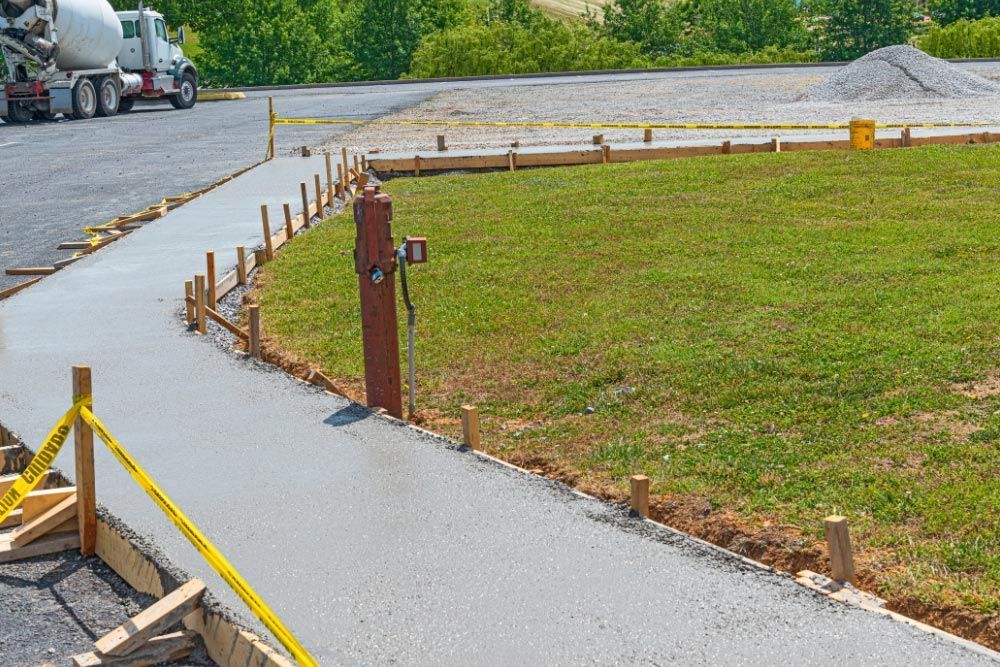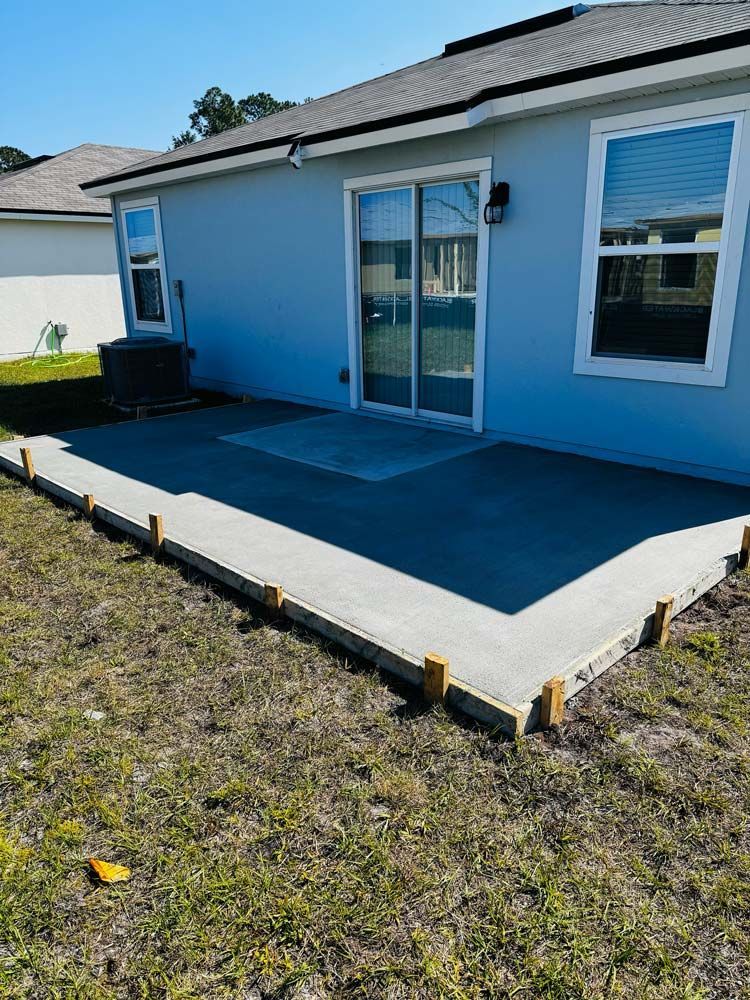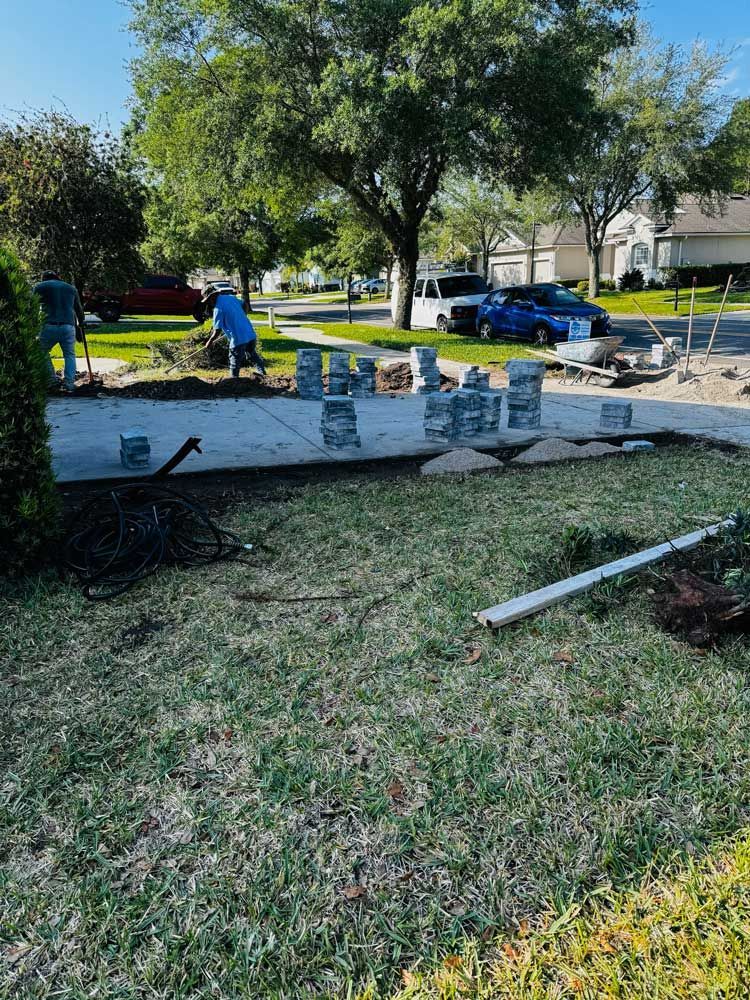Concrete vs Asphalt Driveway: Which Is Better for Your Home?
Your driveway is more than just a place to park your car, it’s one of the first things people notice about your home. Choosing the right material for your driveway can impact curb appeal, maintenance costs, durability, and even resale value. The two most popular choices for homeowners are concrete driveways and asphalt driveways. Both come with unique benefits and drawbacks, so how do you decide which is better for your home? Let’s break it down.
Concrete Driveway
A concrete driveway is built using a mix of cement, sand, gravel, and water. Known for its strength and durability, concrete is one of the longest-lasting driveway materials available. Homeowners choose concrete driveways because they can:
- Withstand heavy loads without cracking easily
- Last 30 years or more with proper care
- Be customized with stamped patterns, colors, or textured finishes
While the initial cost of a concrete driveway is higher than asphalt, the long lifespan and low maintenance needs make it a strong long-term investment. For homeowners who value durability and design flexibility, concrete is often the preferred choice.
Asphalt Driveway
An asphalt driveway is made from a blend of stone and sand mixed with asphalt cement. This type of driveway is widely chosen for its:
- Affordability compared to concrete
- Fast installation process (often within a day or two)
- Smooth, sleek finish that enhances curb appeal
Another advantage is that asphalt’s dark surface absorbs heat, which can help snow and ice melt faster in winter. However, asphalt typically requires more upkeep than concrete, including sealcoating every 2–3 years and filling small cracks to prevent damage. With regular maintenance, an asphalt driveway can last 15–20 years, making it a cost-effective option for many homeowners.
Cost Comparison: Asphalt vs Concrete Driveways
When deciding between a concrete or asphalt driveway, understanding the cost differences is crucial for budgeting. Costs vary based on driveway size, material quality, labor, and region, but the general ranges are:
| Driveway Type | Average Cost per Square Foot | Lifespan | Maintenance Needs |
|---|---|---|---|
| Concrete | $6 – $15 | 25–30+ years | Low; occasional sealing & repairs |
| Asphalt | $3 – $10 | 15–20 years | Moderate; sealcoating & crack repair every few years |
Key Points:
- Upfront Cost: Asphalt is generally cheaper initially, making it a popular choice for homeowners on a budget.
- Long-Term Value: Concrete lasts longer with less maintenance, often offsetting the higher initial cost.
- Maintenance Costs: Asphalt requires periodic sealcoating and repairs, while concrete usually only needs occasional patching and sealing.
Maintenance and Durability of Asphalt vs Concrete Driveways
Maintaining your driveway properly can extend its lifespan and keep it looking great. Here’s what to expect for asphalt and concrete in 2025:
Concrete Driveways
- Durability: Concrete is extremely strong and can last 25–30+ years when installed correctly. It handles heavy vehicles and harsh weather well.
- Maintenance: Requires minimal maintenance. Occasional sealing, cleaning, or small crack repairs are usually enough to keep it in good condition.
- Long-Term Benefits: Fewer repairs over time make concrete a cost-effective choice despite a higher initial price.
Asphalt Driveways
- Durability: Asphalt is flexible and can handle minor ground movement, but it typically lasts 15–20 years. Extreme heat may soften the surface, and cold climates can cause cracks.
- Maintenance: Needs regular upkeep, including sealcoating every 2–3 years and repairing cracks promptly to prevent damage.
- Long-Term Considerations: While asphalt is cheaper upfront, ongoing maintenance can add costs over its lifespan.
Lifespan & Long-Term Value
When choosing a driveway, it’s important to consider long-term value, not just upfront costs.
Concrete Driveways:
- Typically last 30–40 years with proper installation and maintenance.
- Fewer replacements over time make concrete a cost-effective long-term investment.
- Enhances property value and curb appeal, which can be a selling point for homeowners.
Asphalt Driveways:
- Usually last 15–25 years, depending on climate and maintenance.
- Requires regular sealcoating and minor repairs, but repairs are easier and less costly than concrete.
- Lower initial cost makes asphalt an attractive option for budget-conscious homeowners.
Pros and Cons at a Glance
Choosing the right driveway material can be tricky. Here’s a quick overview of the main pros and cons of concrete and asphalt to help you decide.
| Feature | Concrete | Asphalt |
|---|---|---|
| Cost | Higher upfront | Lower upfront |
| Lifespan | 30–40 years | 15–20 years |
| Maintenance | Low, costly repairs | Frequent, affordable repairs |
| Installation Time | 5–7 days cure | 1–2 days |
| Aesthetics | Highly customizable | Limited options |
| Climate Performance | Best in heat | Best in cold |
Which One Should You Choose?
Deciding between a concrete and asphalt driveway depends on several key factors. Here’s a closer look to help you make the right choice:
- Budget: If upfront cost is your main concern, asphalt is the more affordable option. Concrete comes with a higher initial price but offers long-term durability.
- Climate: Asphalt is more flexible and performs better in cold, freeze-prone regions. Concrete is ideal for hot climates, as it stays cooler and resists softening.
- Longevity: Concrete driveways typically last longer, often 30+ years, while asphalt may need replacement sooner. However, asphalt is easier and cheaper to repair.
- Aesthetics: Concrete allows for a variety of colors, patterns, and textures for a customized look. Asphalt offers a classic black finish that complements most homes.
By weighing these factors, you can select the driveway material that fits your home, budget, and lifestyle best.
Final Thoughts
There’s no one-size-fits-all answer to the concrete vs asphalt driveway debate. Asphalt is budget-friendly and quick to install, while concrete offers durability and design flexibility. The best choice depends on your climate, budget, and long-term goals.
Whether you choose concrete or asphalt, the right driveway can enhance your home’s curb appeal and value,
contact us local contractors to get a free estimate and start your driveway project!
Frequently Asked Questions
How long does a concrete driveway last compared to asphalt?
Concrete driveways are known for their long lifespan, typically lasting 30–40 years when properly installed and maintained. Asphalt driveways usually last 15–25 years, depending on climate and care. While concrete may cost more upfront, its longevity often makes it a better long-term investment.
Which driveway material is more affordable?
Asphalt driveways are generally more budget-friendly upfront, costing less per square foot than concrete. Concrete has a higher initial price, but its durability and lower maintenance requirements can save money over time, making it cost-effective for homeowners planning to stay in their home long-term.
Does climate affect the choice between concrete and asphalt?
Yes, climate is a major factor. Asphalt is flexible and performs well in cold climates, handling freeze-thaw cycles without cracking as easily. Concrete is better suited for hot climates, as it stays cooler and is resistant to softening or warping under intense sunlight.
How much maintenance do concrete and asphalt driveways require?
Concrete driveways are relatively low-maintenance, requiring occasional cleaning, minor crack repair, and careful use of de-icing chemicals. Asphalt driveways need regular sealcoating every 2–3 years and prompt attention to cracks or potholes to maintain durability and appearance.
Can concrete or asphalt driveways be customized?
Concrete offers a wide range of design options, including stamped patterns, colored finishes, and textures that mimic stone or brick. Asphalt is usually black but can be enhanced with decorative borders, pavers, or exposed aggregate finishes, offering some design flexibility for homeowners.
Which driveway adds more value to a home?
A well-maintained concrete driveway generally provides higher curb appeal and can positively impact resale value, especially in neighborhoods with higher-end homes. Asphalt can still enhance property value, but its shorter lifespan and maintenance needs may be a consideration for some buyers.
How do I decide between asphalt and concrete for my home?
Choosing the right material depends on several factors: budget, local climate, maintenance commitment, aesthetics, and long-term value. Concrete is ideal for those who want durability and customizable design, while asphalt is best for homeowners looking for lower upfront costs and easier repairs.



